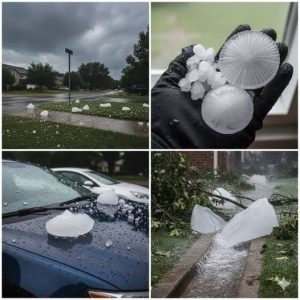I was seven when everything changed—sirens at night, a neighbor’s voice saying words I didn’t understand. Grandpa Arthur took me in, his small house a refuge. He was the porch-at-dawn kind of man—strong coffee, creaky chair, steady hands teaching me how to thin carrots. “Plants are like people,” he’d say. “You have to pay attention.”
We fished the creek, planted tomatoes, and every night, he’d tell stories about his childhood and the family we’d built. The house creaked, and those stories stitched me together.
But by seventeen, shame crept in. My pickup seemed ancient, the house embarrassingly floral compared to my friends’ homes. I started asking Grandpa to drop me off a block from school, telling myself this was growing up.
When I left for college, I promised I’d visit often. I didn’t. Eleven birthdays passed with unanswered voicemails: “Made your favorite pot roast. Would love to see you, son.” I always had an excuse.
This July, I drove home and found his house gutted by fire. Black stains on the siding, windows missing, porch sagging. Mrs. Harlow, the neighbor, told me Grandpa almost didn’t make it out. He was alive but in the hospital—and he’d been asking for me.
I realized then how many calls I ignored. At the hospital, his face lit up when he saw me. I apologized, overwhelmed. He took my hand and said, “You’re here,” and that was enough.
We spent days relearning each other—planting herbs on his windowsill, fixing an old radio, and writing down stories he feared forgetting.
Grandpa told me, “Houses burn. Things go. Stories are what outlive us if we let them.” I almost let him die twice—once in that fire, and again in silence.
So now, every voicemail, every birthday, every moment matters. If your phone buzzes with someone who raised you, answer it. Sometimes, if you’re lucky, they’re waiting just long enough.




